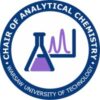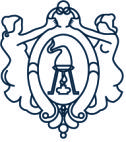The beginnings of analytical chemistry are as old as chemistry itself. The father of chemistry, Robert Boyle, was an outstanding seventeenth-century experimenter. Quantitative chemistry owes its development to the work of the Russian researcher Mikhail Lomonosov and the French Antoine Lavoisier who were active in the second half of the 18th century. Chemical analyses are needed where it is necessary to determine the chemical composition of raw materials or products.
- The first note about the studies at the Faculty of Chemistry in the field of analytical chemistry concerns the academic year 1917/18: Prof. Stanislaw Glixella’s lecture for 3rd semester students, laboratories of qualitative and quantitative analysis in the 3rd and 5th semesters conducted by Prof. Jan Zawidzki.
- The academic year 1921/22 – sources do not specify the person responsible for education in analytical chemistry; for the first time the staff of the Faculty include “Struszyński Marceli, inżynier–technolog, n. Chemji analitycznej na Wdz. Chemji, adjunkt przy Zakł. Technol. ogóln. oryg. i Technol. węglowodanów” [Struszyński Marceli, engineer-technologist, specialist in analytical chemistry at the Faculty of Chemistry, adjunct professor at the Department of General Technology and Technology of Hydrocarbons].
- Academic year 1922/23 – lecture on analytical chemistry (2 hours a week) is conducted by Marceli Struszyński, laboratory classes (10 hours a week in the winter semester and 20 hours in the summer semester) are still conducted by Prof. Jan Zawidzki, and after his death (14 September 1928) by Prof. Tadeusz Miłobędzki. Separate lectures and laboratory classes in analytical chemistry are offered until the Second World War.
- 1938 – Marceli Struszyński is appointed associate professor and Head of the Chair of Technical Analysis and Commodity Studies at the Faculty of Chemistry of the Warsaw University of Technology.
- Occupation period – clandestine studies are offered at the Faculty of Chemistry and scientific activity is continued; Prof. Marceli Struszyński teaches analytical chemistry. The analysis of liquid propellant materials for V2 missiles, carried out by him under conspiratorial conditions, was a scientific achievement of military importance at that time.
- 1946 – teaching at the Faculty of Chemistry is resumed; on 1 March 1946 Prof. Marceli Struszyński is appointed associate professor and resumes his teaching and scientific activity as Head of the Chair of Technical Analysis and Commodity Studies at the Faculty of Chemistry at the Warsaw University of Technology.
- 1947-1950 – Prof. Marceli Struszyński publishes an extensive work in three volumes entitled ”Technical and Quantitative Analysis” (first edition). The book contained a description of quantitative methods of chemical technical analysis and included a comprehensive set of analyses of solid, liquid and gaseous materials and products. It was a collection of procedures for practical use by chemists, analysts and students.
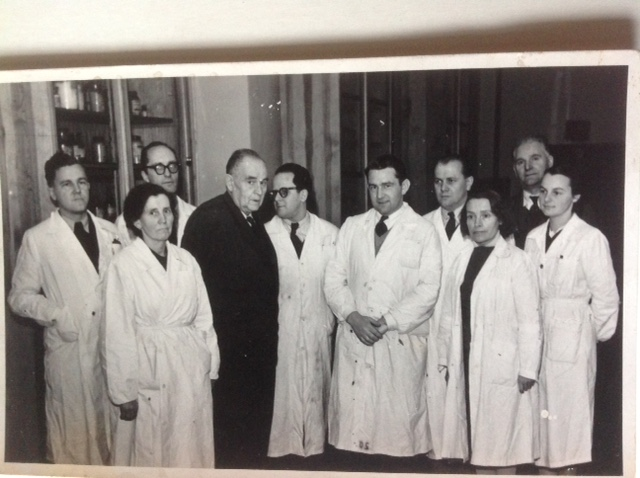
- 1950-1960 – rapid development of instrumental analytical techniques, significant increase in their role and importance in modern analytical chemistry. Apart from classical gravimetric and titration techniques the team of Prof. Marceli Struszyński increasingly uses new instrumental techniques: electrochemistry, visible/ultraviolet spectrophotometry and chromatography in research works and in analytical practice. Emission spectrometry is equally widely used.
- 1959 – reorganization of the Faculty: division into two Institutes and transformation of the Chairs into Departments; the Chair of Technical Analysis and Commodity Studies becomes the Department of Analytical Chemistry – thus analytical chemistry is recognized as an independent field of chemistry, important for the education of students of chemistry. The Department’s teaching and research staff included: Jerzy Minczewski, Ass.P., Zygmunt Marczenko, MSc, Cezary Różycki, MSc, Stefan Rydel, MSc, Tadeusz Witkowski, MSc, Zofia Skorko-Trybuła, MSc, Jadwiga Chwastowska, MSc, Urszula Stolarczyk, MSc, Jerzy Szewczyk, MSc, Janina Walczyńska, MSc, Stefan Waszak, MSc, Michał Żmijewski, MSc, Zygmunt Pankowski, MSc, Jan Dojlido, BEng, Maria Dutkiewicz, MSc, Elżbieta Harasimiuk-Wieteska, BEng, Barbara Karczewska, BEng, Krzysztof Kasiura, BEng, Leon Pszonicki, BEng, Nikodem Sobczak, BEng, and technical staff: Anna Micińska-Trepkowska, Ryszard Danaj, and Grażyna Odrowąż-Kapuścińska (since March 1959).
- 1960 – an isotope laboratory organized by Cezary Różycki, MSc, is established.
- 1960-1967 – in 1959, after the death of Prof. Marceli Struszyński, Prof. Jerzy Minczewski became the Head of the Department of Analytical Chemistry. Classes conducted in the Department during this period included: lectures by Prof. Jerzy Minczewski and Zygmunt Marczenko, PhD, a quantitative analysis laboratory (10 hours a week in the winter semester – continuation of the program) led by Zygmunt Marczenko, PhD (since 1961 by Maria Krasiejko, PhD) and a qualitative analysis laboratory. In 1965, a new textbook by Prof. Jerzy Minczewski and Zygmunt Marczenko, PhD, was published (revised and published many times later), containing material on analytical chemistry that was the subject of studies for various years – presenting the theoretical basis of analytical reactions and the issues of qualitative, quantitative and instrumental analysis. The publication uses the symbolism recommended by the International Union of Pure and Applied Chemistry (IUPAC).
- 1967-1991 – The Department of Analytical Chemistry is headed by Zygmunt Marczenko, PhD, DSc (full professor since 1977).
- 1967 – a new laboratory for instrumental analysis (12 hours a week) was established (in place of the laboratory for qualitative analysis transferred to the Department of General Chemistry in 1965) under the direction of Zofia Trybułowa, PhD; the first academic textbook was written and published under her editorship. The classes include analytical methods using UV-Vis spectrophotometry, flame photometry, potentiometry, polarography, thin-layer chromatography. Jadwiga Chwastowska, PhD, launches the spectral emission analysis laboratory.
Within the Department there are two teams conducting scientific research and performing ad hoc research and implementation works for industry and other units of the Faculty and the University. The first team is headed by Zygmunt Marczenko, PhD, DSc, and includes: Krzysztof Kasiura, PhD, Łucja Lenarczyk, PhD, Mirosław Mojski, PhD, Andrzej Ramsza, PhD, Maria Krasiejko, PhD, Maria Balcerzak, MSc, Iwona Czarnecka, MSc, Helena Kałowska, MSc, Tadeusz Kowalski, MSc, Maria Szczygielska, MSc, as well as technicians: Ryszard Danaj, Magdalena Latuszkiewicz, Krzysztof Murawski, Emilia Stasiak, and Marek Ślusarz.
The team working in the area of separation techniques led by Zofia Trybułowa, PhD, included: Zofia Boguszewska, PhD, Jadwiga Chwastowska, PhD, Elżbieta Grzegrzółka, PhD, Małgorzata Krzyżanowska, PhD, Elwira Lachowicz, PhD, Barbara Różańska, PhD, Cezary Różycki, PhD, Waldemar Suszczewski, PhD, Elżbieta Kosiarska, MSc, as well as technical employees (at different times): Grażyna Maciejko, Narcyza Trzebińska, Adam Kolendo, Andrzej Ćwil, Małgorzata Olczak, Ada Madalińska (since 1990). Administration is provided by: Magdalena Opałko (Żerek), and later Barbara Żywocińska.
- 1991-2006, Prof. Krzysztof Kasiura holds the position of Head of the Department (and since 1998 – Chair) of Analytical Chemistry.
- Academic year 1992/93 – the new statutory regulation on curricula limits the weekly number of contact hours. The main classes in the field of Chemical Technology include lectures on classical analytical chemistry (Maciej Jarosz, PhD, DSc) and instrumental chemistry (Prof. Krzysztof Kasiura), quantitative analysis laboratory headed by Stanisław Kuś, PhD, and instrumental analysis laboratory (spectroscopic, chromatographic and electrochemical techniques) led by Zbigniew Brzózka, PhD. Funds are raised and spent on the renewal of equipment and apparatus (UV-Vis Hitachi spectrophotometer; AAS Perkin Elmer analyzer; 13 microcomputers IBM/PC; GC/MS, apparatus for elementary analysis).
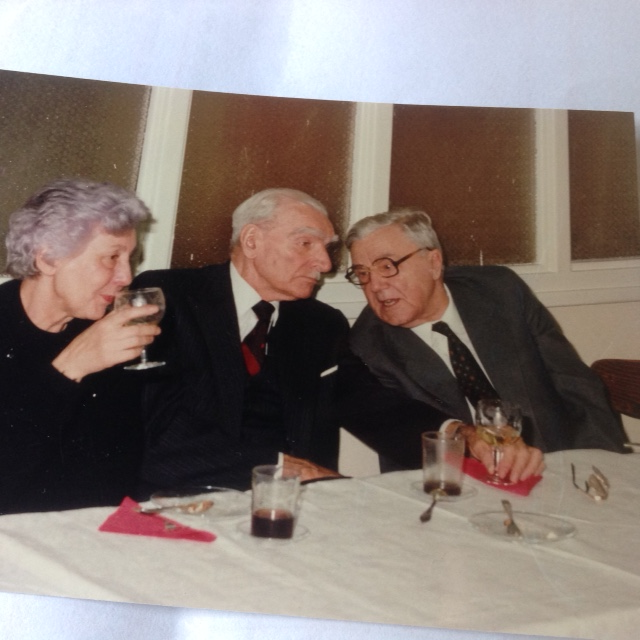
- 1990s – the Interdepartmental Centre for Biotechnology is established, which provides education in the field of Biotechnology. Since 2002, laboratory classes in quantitative and instrumental analysis have been conducted on the basis of a specially developed academic textbook (edited by Prof. Maria Balcerzak). Cooperation with other universities and colleges is developing – a laboratory room with technical facilities is outsourced to the University of Cosmetics and Healthcare; for many years to come students of the Chemical Secondary School in Saska Street will be admitted as interns.
A research laboratory for liquid chromatography and capillary electrophoresis is established, as well as a research team of Chemical Sensors Research Group led by Prof. Zbigniew Brzózka composed of: Elżbieta Malinowska, PhD, Artur Dybko, PhD, and Wojciech Wróblewski, PhD.
- 2002 – the Laboratory of Environmental Analyses and Separation Methods (currently the Laboratory of Separation Techniques) is established. Hyphenated techniques are introduced into the research practice.
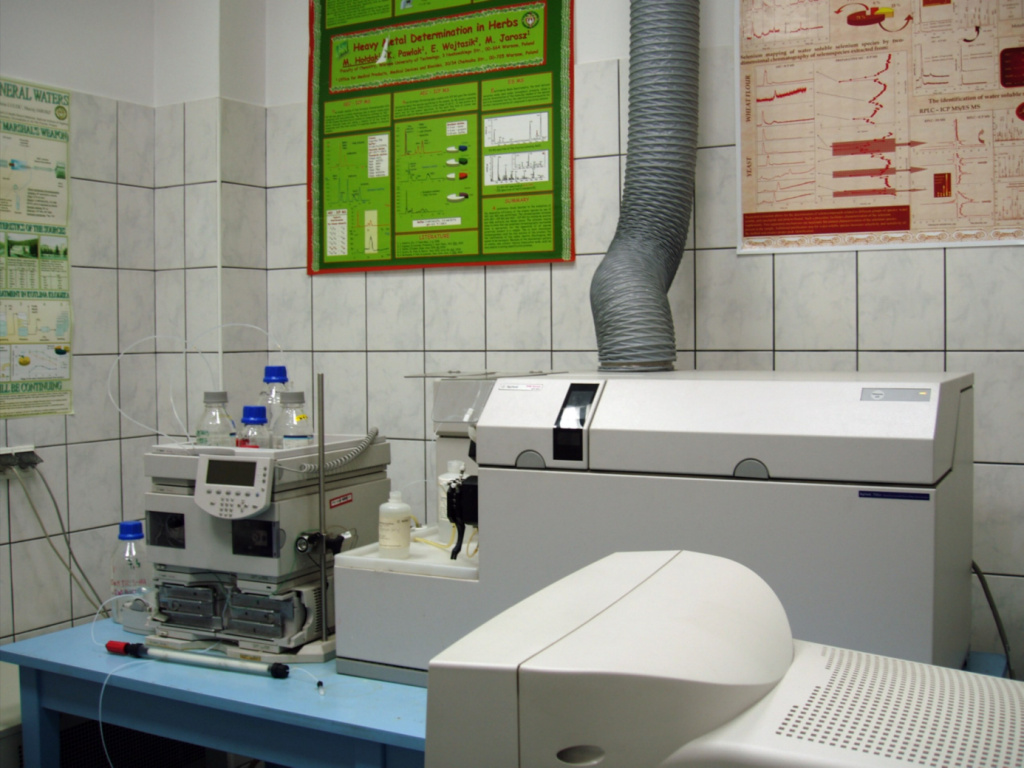
(photo: Jan K. Abramski)
- 2006 – Prof. Maciej Jarosz becomes Head of the Chair of Analytical Chemistry.
- 2008 – organizational division of the Chair of Analytical Chemistry, from which a new Department of Microbioanalysis is separated – it is an organizational unit of the Institute of Biotechnology established at this time. The Department, which included employees of the Chemical Sensors Research Group, was managed by Prof. Wojciech Wróblewski. The above organizational changes resulted from the Resolution of the Senate of the Warsaw University of Technology dated 28 May 2008, according to which education in the field of Biotechnology was included in the tasks of the Institute of Biotechnology from October 2008. The Department of Microbioanalytics was transformed in 2018 into the Chair of Medical Biotechnology, headed by Prof. Zbigniew Brzózka.
- At present, the training at the Chair is conducted in the areas of Chemical Technology, Biotechnology, Chemical Engineering, Management and Production Engineering, as well as Biomedical Engineering in the field of basic analytical chemistry, instrumental analytical techniques, and analytical control in industry. About 500 students per week study in the laboratories of the Chair of Analytical Chemistry.
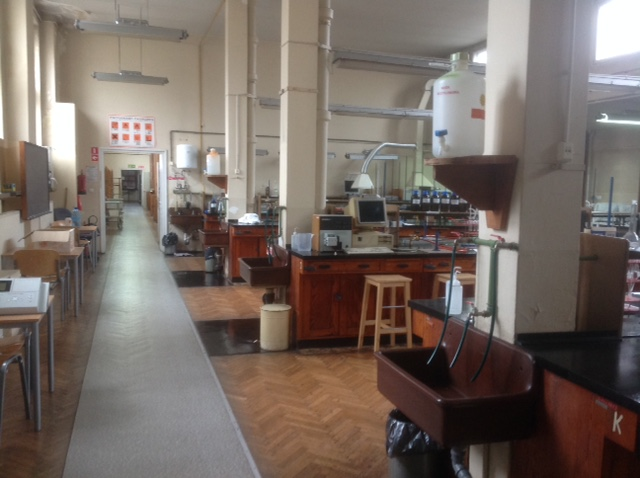
The scientific work carried out in the Chair of Analytical Chemistry is aimed at developing new analytical procedures for characterizing materials and investigating mechanisms of processes occurring in the biosphere. They are used, among others, to identify natural dyes in works of art, to determine microelements in food products, to study kinetics of binding metal complexes and nanomaterials with potential anticancer properties by transporting proteins, to determine selected ingredients in food products and cosmetics, as well as to separate and determine precious metals. Research is carried out using mass spectrometry (ICP MS, ESI MS), atomic absorption and optical spectrometry, UV-Vis and derivative spectrophotometry, chromatographic techniques (HPLC, GC) and related (EC) coupled techniques.
The team of employees of the Chair of Analytical Chemistry includes (or until recently has included) academic teachers: Prof. Ryszard Łobiński, Prof. Maria Balcerzak (until retirement in 2018), Prof. Krzysztof Jankowski, Prof. Maciej Jarosz, Prof. Krzysztof Kasiura (until retirement in 2007), Mirosław Mojski, PhD, DSc, university professor (until retirement in 2011), Katarzyna Pawlak, PhD, DSc, university professor, Sławomir Oszwałdowski, PhD, DSc, Lena Ruzik, PhD, DSc, university professor, Iwona Głuch-Dela, PhD, Stanisław Kuś, PhD (until retirement in 2018), Elwira Lachowicz, PhD (until retirement in 2007), Katarzyna Lech, PhD, Magdalena Matczuk, PhD, Norbert Obarski, PhD, Barbara Różańska, PhD (until retirement in 2007), Elżbieta Święcicka-Füchsel, PhD,Joanna Zajda, PhD and Justyna Wojcieszek, MSc. Technical staff: Magdalena Latuszkiewicz (until retirement in 2012), Narcyza Trzebińska (until retirement in 2015), Piotr Sowa.
- The joint scientific work helped many graduates, doctoral students and employees obtain doctoral and post-doctoral degrees, as well as professorial titles. Graduates of the Chair enjoy recognition and obtain degrees also after moving to other (Polish and foreign) scientific institutions.
The final competition of the Chemical Olympics, organized by the Faculty’s staff in the laboratories of the Chair, contributes to increasing the interest in studies at the Faculty of Chemistry and raising the level of young people admitted to these studies. Since 1997, Stanislaw Kuś, PhD (also the author of the competition questions) has been continuously leading the preparatory work.
The staff of the Chair of Analytical Chemistry performed many organizational and social functions at the University and the Faculty of Chemistry, including those of vice-rector, dean, vice-dean, chair of Senate and Rector’s Committees. The teaching and scientific work, creativity and commitment of the Chair staff have been recognized and they were awarded and decorated with state and university awards, Crosses of Merit and occasional medals.
(Narcyza Trzebińska)
April 2021
Heads of Department/Chair of Analytical Chemistry
Professors and staff with post-doctoral degree
Prof. Krzysztof Jankowski PhD, DSc, Eng
Prof. Ryszard Łobiński, PhD, DSc, Eng
Sławomir Oszwałdowski, PhD, DSc, Eng
Katarzyna Pawlak, PhD, DSc, Eng
Lena Ruzik, PhD, DSc, Eng, university professor
Magdalena Matczuk, PhD, DSc, Eng
Katarzyna Lech, PhD, DSc, Eng
Former employees of the Department/Chair of Analytical Chemistry (professors and staff with post-doctoral degree)
Prof. Maria Balcerzak, PhD, DSc, Eng
Prof. Zbigniew Brzózka, PhD, DSc, Eng (Chair of Medical Biotechnology), Dean of the Faculty of Chemistry, 2008-2012, 2012-2016, Head of the Chair of Medical Biotechnology from 2017
Prof. Michał Chudy, PhD, DSc, Eng (Chair of Medical Biotechnology)
Jadwiga Chwastowska, PhD, DSc, Eng (in the years 1955-1965, 1971-1988)
Prof. Patrycja Ciosek, PhD, DSc, Eng (Chair of Medical Biotechnology)
Prof. Artur Dybko, PhD, DSc, Eng (Chair of Medical Biotechnology), Head of IT Laboratory since 2006
Prof. Elżbieta Malinowska, PhD, DSc, Eng (Chair of Medical Biotechnology), Director of the Institute of Biotechnology, 2008-2012, Vice-Dean of the Faculty of Chemistry, 2012-2016
Mirosław Mojski, PhD, DSc, Eng, university professor, Vice-Dean of the Faculty of Chemistry, 1980-1987, Dean of the Faculty of Chemistry, 1990-1996, Vice-Rector of the Warsaw University of Technology, 1996-2002
Prof. Cezary Różycki, PhD, DSc, Eng
Zofia Skorko-Trybuła, Ass.P., PhD, DSc, Eng
Prof. Kamil Wojciechowski, PhD, DSc, Eng (Chair of Medical Biotechnology)
Prof. Wojciech Wróblewski, PhD, DSc, Eng (Chair of Medical Biotechnology ), Vice-Dean of the Faculty of Chemistry, 2002-2005, 2005-2008, 2016-2020, Head of the Department of Microbioanalytics, 2008-2017.
